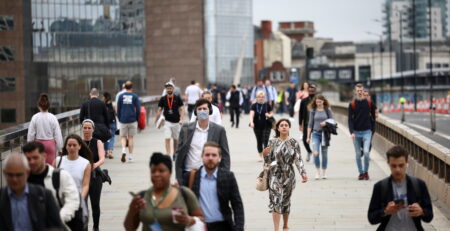Pandemic Shines a New Light on Climate Change and ESG Investing
Scientists and environmentalists have reported a drop in daily carbon dioxide emissions as a result of the pandemic, and the connection between the pandemic and its effect on climate change has spurred plan sponsors and companies to support environmental, social and governance (ESG) investing, says Matt Seymour, chief executive officer at RiskFirst. “The pandemic is really going to emphasize the rationale and need for people to look at ESG investments in an integrated and fundamental way,” he notes.
Read also “The COVID-19 crisis is an opportunity to reimagine human mobility”
Plan participants have been increasingly interested in sustainable investing in recent years, adds Ed Farrington, head of retirement at Natixis. Socially conscious investors, interested in ESG investment opportunities, had been slowly turning the tide and influencing workplace employers. A 2019 study by American Century Investments showed 90% of defined contribution (DC) plan sponsors who offered, or were considering offering, ESG investments believed it would attract participants. “Participants have instinctively understood that these issues will show up in the price of their securities over time,” Farrington adds. “We have plenty of evidence now suggesting that responsible and sustainable investments belong inside a workplace plan.”
Read also UK university pension fund to axe controversial investments
Yet the demand for ESG investing has garnered little implementation in the retirement industry space and, more notably, in DC plans. Investing for a social purpose was long believed to challenge alpha, exchanging a market rate of return for ethics, explains James Rich, a senior portfolio manager on the Sustainable Fixed Income Strategy team at Aegon Asset Management. “There’s this notion that investing sustainably comes at a cost, where you’re putting your ethics above your financial needs, but that’s not the case at all,” he says. “Responsible investing is necessary because the economy is shifting.”
Now, the COVID-19 crisis is altering how the global economy will move toward the future. Market downturns and the economic shutdown set off by the pandemic have ignited new corporate behaviors that can deliver positive effects to the environment, such as issuing green, social and even COVID-19 bonds, said Campe Goodman, a fixed income portfolio manager at Wellington Management, during a sustainable investing roundtable hosted by the company. “What we’ve seen through this crisis is it has accelerated a lot of trends that we have been seeing, and ESG is one of them,” he stated.
The convergence of digital and sustainable investing had been difficult to navigate in past years, but due to stay-at-home orders, businesses are recognizing how both trends can succeed together. The increased use of digital technology and online communication, such as Slack messages and Zoom meetings, emphasizes that people and companies can thrive in lower-carbon environments, Rich says. This effect represents how sustainable investing can withstand the crisis and continue generating alpha. Corporate resiliency, he says, is being redefined. “Employers are generating alpha because they’re investing responsibly, while at the same time having a positive impact on the environment,” he adds. “It’s sort of this holy grail of investing.”
Read more @Plasnsponsor











